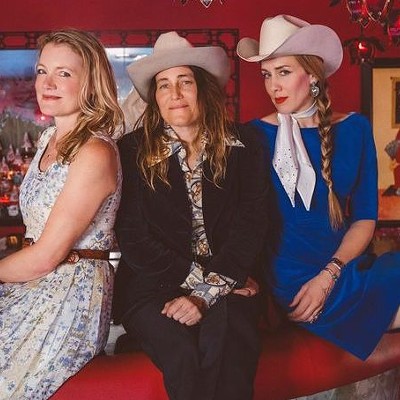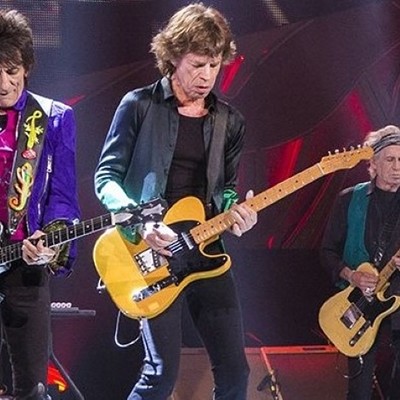Note: first in an occasional series.
University of St. Thomas. 1966. Conversations with an angel commence outside the Chapel of St. Thomas Aquinas. “What did Aquinas know about God?” the Angel asked people passing him. Only those soaked from head to toe in lysergic acid diethylamide could hear the angel’s voice. “Aquinas, a tired Aristotelian, tried to turn The Master of the Universe into an equation. Poor Dumb Ox. You cannot touch his heart with words alone. Planets howl. Helium whistles. God hears them all.”
Lying on the bench entreated in the soporiferous joy of Psilocybe and LSD, a young man with hair black as pitch and eyes expanded like the universe placed his ear to the cracks that separated the Heavens from the mortal tramps. Christened Mayo Thompson, he heard each and every word and answered the angel with a question.
“But I don’t know how to play an instrument?”
“He makes his angels winds and his ministers a fiery flame,” the Angel retorted.
Mayo Thompson stood up, tilted his eyes to the skies, opened his mouth wide and sang a song to heavy hearts like those who have no garments on a cold day. Roky Erickson, Syd Barrett and Robert Wyatt also heard Thompson’s song.
Thompson revealed his vision to Frederick Barthelme – brother of Donald Barthelme, the novelist who gave the world great books like Come Back, Dr. Caligari and Snow White – and Barthelme lived in the light of Thompson’s testimony, sitting behind the kit to connect crude, calculating rhythms to the heart. Steve Cunningham prepared his four-string earthquake machine to warble sounds not yet heard in the eternities. Off of Jackrabbit Road, in the rural days of Far West Houston before strip malls molested the salt-of-the-earth community, the three universal communicants named their collective Crayola. Their Codex Mendoza. The name was changed to Red Krayola because those who love money more than words protect their money, and those who love words more than money know that words cannot be owned.
Strange were the times, especially in the American South. The local newspapers blacked out coverage of the actions of the Civil Rights Movement. Even following the passage of the Civil Rights Act of 1964, Jim Crow still stood tall. Weingarten’s kept the races separated; most Houston-area parks had signs still that still read “Whites Only. No Negroes or Spanish Allowed.” Schools remained segregated. Then the drums of war began to pound for Vietnam. Red Krayola reflected the pervasive noise clanking and scraping and cracking against the silent city. They made music that peeled the unready scab, filled with blood and puss, to see if anyone with ears could hear.
Red Krayola drew from already drawn patterns. Unskilled, they performed abstracted versions of “Hey Joe” and “House of the Rising Sun.” Although Thompson delved deeply in the music that parented the music he emulated, he knew that his voice was not cut from their same cloth. Within their renditions of those songs and others they failed to imitate, the band found their voice. He and his bandmates were old souls who had lived many times before. Knowing what to do, they made shapes, not sounds. They painted darks and grays, not notes. They heard what others thought to be ugliness, and they heard otherwise. They decided to pay homage to no one else.
At the time The Velvet Underground was performing its odes to urban decay, The Red Krayola pursued all ten dimensions with songs like “Free Form Freak-Out,” “War Sucks,” “Parable of Arable Land” and “Pink Stainless Tail.” They spoke of miracle mothers and made promises that exposed their inability to disrupt time and space. Codes to the heavens only the aforementioned Angel could decipher. The Parable of Arable Land contained moments of silence. The music disappeared, or listeners needed to tune in to their bandwidth to hear the sounds between the silence. Hymns from The Parable of Arable Land gave birth to Houston noise.
A little-known fact: Itzhak Perlman played Elvis on a blender. Not Shostakovich, not Bartók, not Mozart. He played the King on a goddamned blender. The world, turned on its head, places The Red Krayola at Jones Hall and Perlman at “outsider” artist colonies like Super Happy Fun Land. Listening to track five, “Free Form Freak-Out,” blues riffs sound like blender sounds; the opening riff of “War Sucks” rips the head off the way blues should be played, replaces the word “should” with “can” and discovers a familiar baritone in Thompson’s growl that would make Howlin’ Wolf lean back in his chair with his hands clasped over his belly and nod. Frederick Barthelme kills his kit, and listens to it die a thousand deaths. He hits the dome of his ride cymbal the way a boxer pounds a heavy bag. Halls of Sound built from the first dimension to the tenth.
Like a specter, Roky Erickson joined the 49 others called The Familiar Ugly — friends of the group who did everything from rubbing match sticks together to smashing glass bottles, fitting for an album rooted in a mythos whose title sounded more closely aligned to Lewis Carroll than to the chaos-filled ‘60s. When the band performed songs off The Parable of Arable Land, audiences booed them. Even the counterculture capital of hippiedom, Berkeley, could not handle the shamble of sounds, as someone purportedly paid the group $10 to cease making their surrealistic racket. Yes, they were too countercultural for Berkeley, making the members of Red Krayola Patron Saints of Artistic Sincerity. Calling bullshit on a scene that manufactured a sound that ended up placing each one of them in the same top 1 percent stood the test of time.
Even today, The Parable of Arable Land has not yet sold 50,000 copies, but The Red Krayola went on to influence bands like Animal Collective, Spacemen 3 and Pere Ubu. Houston groups like Indian Jewelry and Charalambides embraced Red Krayola's otherworldly ethos. They heard the Angel of Fire beneath the subtext of The Red Krayola’s free-form hymns. They listened to the spaces where nothing played. Richer are we, especially those of us who live, or have lived, in Houston knowing that such a monolithic work came from our beloved city.
Support Us
Houston's independent source of
local news and culture
account
- Welcome,
Insider - Login
- My Account
- My Newsletters
- Contribute
- Contact Us
- Sign out
[
{
"name": "Related Stories / Support Us Combo",
"component": "11591218",
"insertPoint": "4",
"requiredCountToDisplay": "4"
},{
"name": "Air - Billboard - Inline Content",
"component": "11591214",
"insertPoint": "2/3",
"requiredCountToDisplay": "7"
},{
"name": "R1 - Beta - Mobile Only",
"component": "12287027",
"insertPoint": "8",
"requiredCountToDisplay": "8"
},{
"name": "Air - MediumRectangle - Inline Content - Mobile Display Size 2",
"component": "11591215",
"insertPoint": "12",
"requiredCountToDisplay": "12"
},{
"name": "Air - MediumRectangle - Inline Content - Mobile Display Size 2",
"component": "11591215",
"insertPoint": "4th",
"startingPoint": "16",
"requiredCountToDisplay": "12"
}
,{
"name": "RevContent - In Article",
"component": "12527128",
"insertPoint": "3/5",
"requiredCountToDisplay": "5"
}
]
KEEP THE HOUSTON PRESS FREE...
Since we started the Houston Press, it has been defined as the free, independent voice of Houston, and we'd like to keep it that way. With local media under siege, it's more important than ever for us to rally support behind funding our local journalism. You can help by participating in our "I Support" program, allowing us to keep offering readers access to our incisive coverage of local news, food and culture with no paywalls.
Stephan Wyatt
Trending Music
- Houston Concert Watch 4/24: Rolling Stones, Bad Bunny and More
- How Much Longer Can Classic Rock Rule the Roost?
- Top 10 Butt-Rock Bands of All Time
-
Sponsored Content From: [%sponsoredBy%]
[%title%]

Don't Miss Out
SIGN UP for the latest
Music
news, free stuff and more!
Become a member to support the independent voice of Houston
and help keep the future of the Houston Press FREE
Use of this website constitutes acceptance of our
terms of use,
our cookies policy, and our
privacy policy
The Houston Press may earn a portion of sales from products & services purchased through links on our site from our
affiliate partners.
©2024
Houston Press, LP. All rights reserved.




